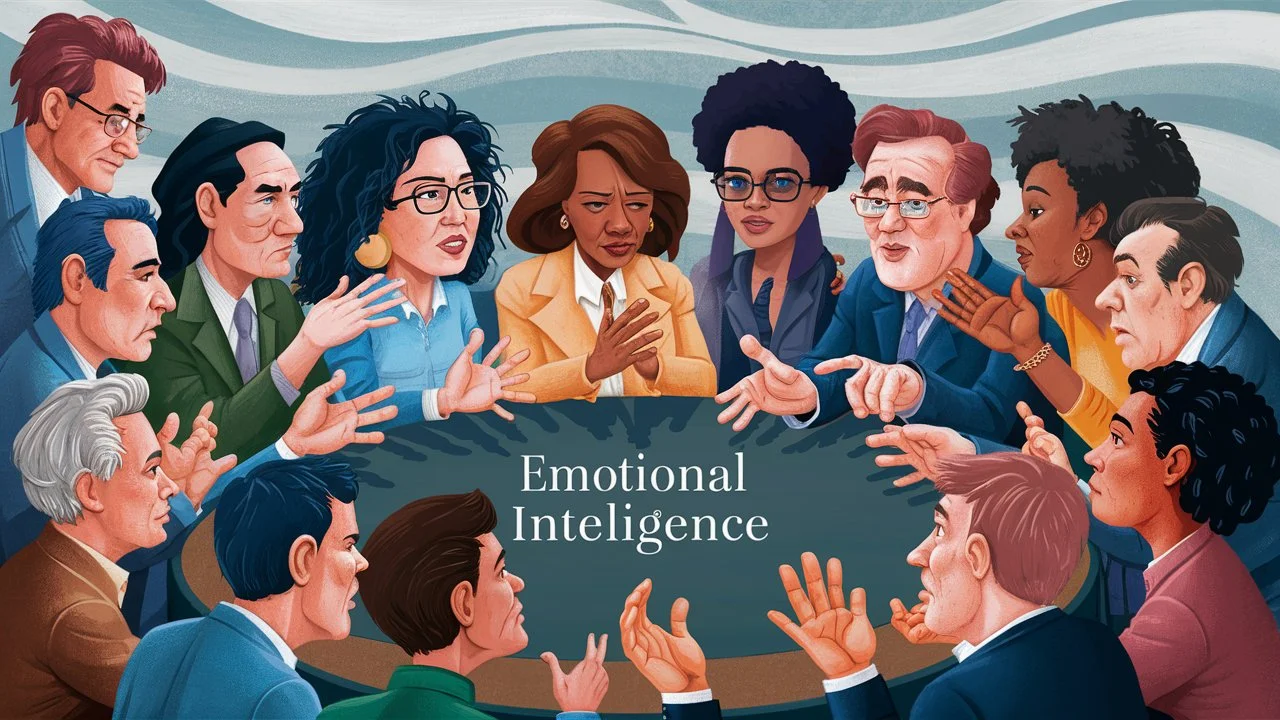
John Hawk Insunrated – Emotional Intelligence is often overlooked in favor of traditional intelligence or IQ. Many people assume that academic knowledge and analytical thinking are the ultimate keys to success. However, emotional intelligence plays a deeper and more long-lasting role in shaping careers, relationships, and personal growth. It helps you recognize your own emotions and understand how they affect others. More importantly, it equips you with tools to manage those emotions effectively. In a world that values fast thinking and sharp minds, it is emotional intelligence that builds resilience, empathy, and effective communication. Whether you are a leader, a student, or simply someone seeking better connections, this skill can elevate every area of life. Emotional intelligence helps bridge the gap between knowledge and action, giving your intellect real-world influence and emotional depth.
Emotional Intelligence begins with self-awareness. You need to understand your own emotions before you can manage or express them clearly. Daily reflection helps identify emotional patterns and personal triggers. Instead of reacting impulsively, emotionally intelligent people pause and respond thoughtfully. This shift leads to better decision-making in high-pressure situations. Through journaling or mindfulness exercises, you can observe your thoughts and feelings without judgment. As a result, your emotional vocabulary expands and communication becomes easier. People around you begin to trust your calm and measured presence. Self-awareness also nurtures personal growth because it shows what drives your behaviors. You become less reactive and more intentional with your actions. Eventually, this inner clarity helps align your values with your goals. When self-awareness grows, emotional intelligence strengthens in every other area of life.
“Read about: You’re One Habit Away from a Healthier Life, Kevin Guest Reveals the 7 Secrets!”
Healthy relationships are often built on emotional understanding. Emotional intelligence helps you notice subtle cues in body language and tone. These insights allow for better responses during conflict or emotional conversations. For instance, when a colleague expresses frustration, your ability to recognize their feeling builds mutual respect. In friendships and romantic partnerships, emotionally intelligent people offer better support. They listen actively, validate emotions, and avoid escalating arguments. Emotional intelligence also encourages vulnerability, creating deeper connections with others. Over time, this creates relationships built on trust and authenticity. People are drawn to those who understand their emotions without judgment. This is not manipulation but genuine empathy in action. Instead of focusing on who is right or wrong, the emotionally intelligent focus on what others feel. This approach leads to healthier communication and long-lasting bonds.
“Read more: The Shocking Role Politicians Play in Ending Human Trafficking And Why It Matters Now”
Strong self-awareness and empathy transform the way leaders and professionals interact at work. Leaders who recognize their team’s emotions can manage conflict more effectively and motivate others with clarity. Instead of controlling through fear or authority, they inspire through compassion and genuine understanding. Employees who are emotionally aware respond well to stress and adapt quickly to change. This kind of flexibility becomes crucial during transitions or challenging situations.
Communication improves when individuals know the right time to speak, listen, and act. Teams thrive in such environments because everyone feels acknowledged and respected. Feedback also becomes more constructive when it’s delivered with emotional sensitivity. This approach fosters a culture where growth and collaboration take priority. Personal qualities like empathy and awareness do not replace skills or qualifications, but they elevate how those abilities are applied. In nearly every profession, people who lead with connection and insight often rise faster by building bridges rather than barriers.
Like any skill, emotional intelligence grows through daily practice. First, stay aware of your emotions in real time. Ask yourself what you are feeling and why. Second, regulate those emotions by using breathing techniques or taking time before reacting. Third, listen actively to others and try to understand their point of view without interrupting. Fourth, show empathy by acknowledging how others feel even if you disagree. Fifth, communicate clearly without blaming or assuming. Sixth, observe how emotions affect group dynamics and learn from them. Even small efforts bring noticeable changes in how people respond to you. Reading emotional cues becomes easier and relationships feel less strained. Practice can include meditation, journaling, or simply pausing before responding. Over weeks and months, you will notice better resilience and connection with those around you. Emotional intelligence rewards patience and persistence with deeper impact.
[SITE_NAME] – pop culture inspires modern creative expression by continuously shaping artistic trends, influencing music styles, and redefining design concepts…
[SITE_NAME] - film reviews that feel more like conversations have reshaped how audiences engage with cinema by fostering inclusive dialogue…
John Hawk Insunrated – The resurgence of analog aesthetics modern creative enthusiasts is redefining how artists and collectors engage with…
John Hawk Insunrated - personal experiments that changed my approach to daily decisions have profoundly influenced my mindset and problem-solving…
John Hawk Insunrated - creativity doesn’t have complicated formulas or rules, yet many assume innovation requires complex methods. Simplifying creativity…